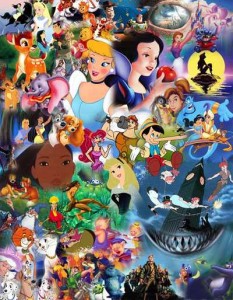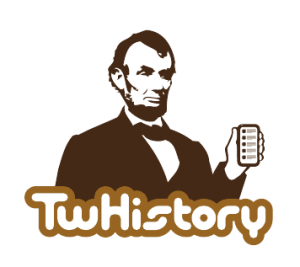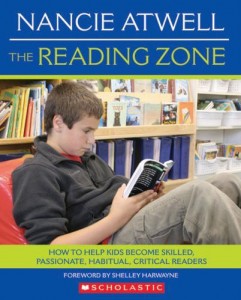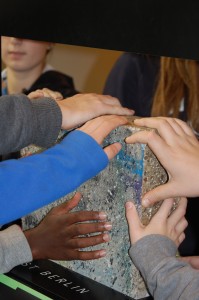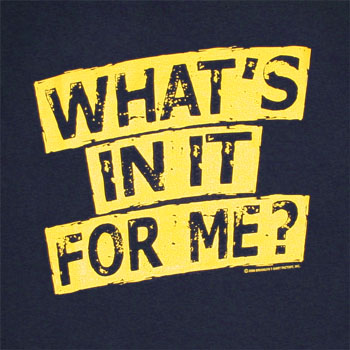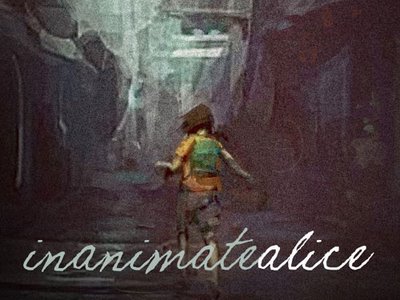August 1, 2011: Day 62
Feels Like a Disney Movie
From Paula White: The following is a guest post by Emma Gore, a rising 9th grader. She’d like to add her voice to the chorus of folks wanting to save our schools from the mediocrity of centering on standardized testing rather than a real education. (Emma’s Post)
What I Learned:
- Emma’s reflection is remarkably mature for an 8th grader…she has a clear understanding of what education should or should not be
- I love her question: Where is the reality in what we are learning?
- Emma questioning the way schools traditionally teach history is spot on
- We need to listen to our students’ voices regarding what and how we are teaching them
- During the #rscon3 conference, Paula White tweeted this blog post
- I retweeted it and said: If you haven’t read Emma’s post on how education feels like a Disney movie, you should.
- Continue to follow the comments people are leaving on Emma’s post
- Give students the opportunity to really share how they feel about their learning experiences
- Encourage social studies teachers to share all viewpoints in their lessons
- Check out the website Emma shared in her post: http://www.eyewitnesstohistory.com/index.html
What I Learned:
- Seriously…Matt Damon is awesome
- There are many people out there who do believe that the process of learning promotes life long learners
- Teachers can make a huge impact when they are allowed to do what they do best…teach
- I’m so thankful I teach in an Independent School where tests do not drive our curriculum or our teachers
- I followed many of the #saveourschools tweets on twitter during the march on Washington
- I came across this article in the Washington Post
- Continue to support my public school colleagues during this frustrating time in education
- Remember every day the teachers who made a difference in my life
- Make sure to continue to connect with students, find their passions, and nurture their learning
- This website reenacts historical events through tweets
- You can become a member and create your own historical timeline…middle school kids would love this!
- You can browse other classes and their reenactments
- Creating character profiles allows students to have an authentic sense of a historical event
- There is a teacher’s corner for info about using TwHistory with your class
- I came across this post because I follow the mindshift blog in my Google Reader
- Share this with the social studies teachers in my school
- Experiment with it this summer before bringing it in to the classroom
- Take some time to browse the reenactments already on TwHistory
What I Learned:
- This video was created by gifted and talented middle school students in Texas
- My favorite quote from their blog “We live in the problem – the best ideas for change are going to come from us. We don’t blame the teachers or the schools themselves for this outdated method – we blame the system. As a group of students stuck in public school long due for an upgrade, we demand change.”
- Students know how they learn best…they are beginning to demand that they are taught in a collaborative, relevant, creative way that incorporates technology
- Students realize this type of collaborative, open source education is less expensive than a traditional one
- If you give students the opportunity to express their voices, they will
- Even students realize they all learn differently and need individualized and differentiated instruction
- I hopped on twitter and saw a RT by @kjarrett from @SirKenRobinson
- Follow the EdEvolution blog
- Give students the opportunity to voice their opinions about how they learn best
- Continue to incorporate collaboration, creativity, and technology into my class every day
August 5, 2011: Day 66
Above and Beyond
What I Learned:
- FableVision and P21 partnered to create this video about creativity and collaboration
- Explores the possibilites when communication, collaboration, critical thinking and creativity take center stage in schools and transform learning opportunities for all kids
- P21 offers a poster relating to the video with the 4 C’s here
- The 4 C’s are considered to be the “super skills” of the 21xt Century
- I had subscribed to FableVisions youtube channel when “I’m Still Here” came out
- I got an update that this new video was uploaded
- Use this with faculty to show how powerful the 4 C’s can be
- Spend some more time investigating the possibilities for teaching and learning on the P21 site
- Subscribe to the FableVision blog
What I Learned:
- Nancie Atwell continues to be a huge influence in my teaching and learning…and has been since I read In the Middle 16 years ago
- I experienced some cognitive dissonance with this one…I was frustrated with how Nancie has created an entire school culture based on passionate readers…it is not as easily achievable with one class
- We need to foster the love for reading early on…the second we start dissecting books and forcing books, we have lost the students
- Students need choice in their reading …the need to be independent
- The Reader’s Bill of Rights
- The right not to read something
- The right to skip pages
- The right not to finish
- The right to reread
- The right to read anything
- The right to escapism
- The right to read anywhere
- The right to browse
- The right to read out loud
- The right to not defend your tastes
- I was working on my reading curriculum and remembered that I wanted to read this before I made any changes, so I ran out to B&N to get it
- I was immediately engrossed in the book, but it is definitely Nancie’s manifesto…many things in this book would not work for my classroom or school
- Find ways to incorporate more independent reading into the curriculum
- Bring back booktalks to my classroom
- Filter down Nancie’s strategies to create skilled, passionate, habitual, and critical readers to the lower grades
What I Learned:
- We retain 25% of what we listen to
- Sound places us in space and time
- World had become noisy
- The art of conversation has been replaced by personal broadcasting
- It is hard to pay attention to the quiet, subtle, understated
- Try to get 3 minutes of complete silence a day
- RASA (receive, appreciate, summarize, ask)
- Listen consciously in order to live fully
- Richard Byrne posted this talk on his blog, so it popped up in my Google Reader
- I just realized you can search Ted talks by length (3 min, 6 min, 9 min, 12 min, 18 min) …when pressed for time, search shorter Ted talks!
- Try to get that 3 minutes of silence (or really quiet time) each day
- Appreciate mundane sounds…maybe pair that with a writing activity for students (sound of a dryer, coffee maker, waves, etc)
- Pay attention to listening…slow down and just listen
August 8, 2011: Day 69
The Next Step: Amplification

- After transformation of learning, the cycle is not complete
- Amplification allows students and teachers to share with an authentic audience and get feedback from it
- For younger students, teachers can amplify for them using social media
- The degrees of amplification are:
- Share student work with the entire class
- Connect and share your student work with other classes in your grade level/building/school
- Place your student work on a classroom website (not password protected)
- Tweet the link to your students’ work out to your PLN to increase traffic to thee site
- Connect to peers, experts and eye witnesses from around the world
- Become a curator by organizing, tagging, categorizing your students’ work to share online
- I have diligently followed Silvia on twitter and her blog…she is the type of educator who always makes me think
- I admire her ability to visualize what she is saying through infographics
- Think about how I give students opportunities to amplify their work…if there aren’t enough, make them
- Take an assignment of mine and take it through the steps of substitution, augmentation, modification, redefinition, then the amplification phase (automating, informing, amplifying)
August 9, 2011: Day 70
Debunking 5 Myths About Project Based Learning

- Misconception: PBL is the same as “making something” “hands on learning” or “doing and activity”
- the artifacts created are not as important as the challenging tasks that led to them
- Misconception: PBL isn’t standards based…it focuses on “soft skills”
- In well-designed projects students gain content knowledge and academic skills as well as learn how to solve problems, work in teams, think creatively, and communicate their ideas.
- Misconception: PBL takes too much time
- It is true that projects take time, but it is time well spent.
- Misconception: PBL is only for older students
- Elementary-age students benefit from engaging, authentic projects just as much as high school students.
- Misconception: PBL is too hard to manage
- It is important to teach students how to work well in teams, manage time and tasks, conduct inquiry, and use formative assessment
- I saw this tweeted several times and finally came across it again in my Google Reader through the 21st Century Fluency Project
- Share this article with skeptics of PBL
- Model ways PBL works for middle school students for other teachers
- PBL includes 21st Century Skills …incorporate these skills into the curriculum
August 10, 2011: Day 71
Kindle Cloud Reader
- Google introduced cloud reader today!
- It allows you to access all of your kindle books within your browser with an offline access
- There is a chrome app for it here
- I was ordering some books for a training I’m doing next week on Amazon and saw the kindle cloud promotion
- Check it out with my kindle library
- Add the kindle extension to my chrome extensions
August 11, 2011: Day 72
Ten Skills Every Student Should Learn

What I Learned:
- Read
- Type
- Write
- Communicate effectively, and with respect
- Question
- Be resourceful
- Be accountable
- Know and learn
- Think critically
- Be happy
- I ran across this while cruising Google+, which was posted by high school principal Eric Sheninger
- I can’t help thinking that if we assessed students on these ten things, school would really look different
- I also keep thinking that teachers should focus on these skills not only for their students, but for their selves
- Evaluate this list and continue to add to it…I’m going to hang this up in my office…
August 12, 2011: Day 73
How to Blossom Someone With Expectation – Building Self Esteem
What I Learned:
- Teachers tend to give feedback like, “way to go” “good job”
- Feedback that builds self esteem needs to be more specific
- The 5 E’s of Blossoming:
- Examine (pay close attention)
- Expose (what they did specifically)
- Emotion (describe how it makes you feel)
- Expect (blossom them by telling them what this makes you expect in the future)
- Endear (through appropriate touch)
- I am currently participating in Sheryl’s PLP Leading Edge Boot Camp and found this video while browsing her youtube videos
- Make a purposeful effort to “bloom” each child
- Be specific in feedback I give
- Check out Sheryl’s other online courses
August 13, 2011: Day 74
What I Learned:
- Pinterest is an online curation “bulletin board”
- Many people have boards based on cool things they find on the Internet, or even use it to plan their weddings
- You can comment on pins, or repin them to your own boards
- I began curating a list of “books to teach memoir with”
- After I curated that list…it dawned on me…isn’t this an excellent way to curate lists for my students? Instead of posting a list of suggested books, I could use a board to create an interactive and appealing suggested reading list.
- I curated “8th grade virtual suggested readings” and embedded it in my class website
- I tagged each pin with the themes we would be touching upon during the year under our larger theme: Identity ~ Who am I? Those tags are #forgiveness #justice #memoir #immigration #formingidentity #makingadifference #global #searchforself
- I also added the class novels and plays we would be using this year to show the broad spectrum of literature they would be exposed to
- Instead of looking at a list of books, my students now have a visual that they are used to seeing…they can “shop” for books within the themes we’ll be exploring this year
- I have been registered on Pinterest for awhile, but didn’t “play” with it until this week
- Once I began to explore the features, I immediately started connecting it to my classroom
- I need to check the terms of service, but I think it would be great for my 8th graders to collaboratively create a board of their own suggested readings (they could always use my account if necessary)
- Students could create boards to show theme, mood, character, etc in a novel
- I could curate boards for specific subject areas or topics to share with the faculty
August 14, 2011: Day 75
Newseum
Above are my students touching a piece of the Berlin Wall last fall.
Not only is the newseum site great for current events, it is a fantastic place to take a field trip.
What I Learned:
- The Newseum is a living news museum
- I saw debris and painted doors from Hurricane Katrina, the twisted metal from an antenna on the Twin Towers, and touched a part of the Berlin Wall
- They have a historical timeline of newspapers of major events from the earliest of papers to today
- Outside the Newseum are the daily front pages from around the world
- You can explore the front pages on their site here
- Richard Byrne posted “5 ways students can visually explore the news” and the newseum was one of them
- I had taken my 8th graders to the Newseum on a field trip last year
- Check out the other visual websites Richard mentioned in his post
- Continue to bring students to the Newseum
- Use the front page website more often in class
August 15, 2011
Conceptua Math
- Conceptua Math is a supplemental online math curriculum that uses simple visual models to make it easy to teach fractions.
- Students progress from concrete to abstract representations, building conceptual understanding and procedural fluency.
- The program works beautifully with the Singapore Math Method
- Here is a video of how it works
- I first learned about it at the Singapore Math Conference I attended in Las Vegas
- Today I won an Edutopia math giveaway and got a free 1 year subscription to Conceptua!
- As soon as I get my hands on a login, I’ll be able to play with it to see the implications for use at my school
- Find out if other teachers are using this at their schools
21:21
What I Learned:
- Patrick Newell created a documentary following schools around the world to look at aligning student learning to 21st Century skills
- Schools included come from: Japan, Brazil, Cambodia, Egypt, Iceland, India, Malaysia, Portugal, Tanzania and the USA
- The themes are learning how to learn, the use of technology, and how guided inquiry prepares students for constant change
- “If we teach today as we taught yesterday, we rob our children of tomorrow.” ~John Dewey
- We must change our education systems to make sure that the next generation have the necessary 21st century skills to thrive in a future they’re going to invent and create.
- Core initiatives:
- raise global awareness of the urgent need for change
- become the global online resource for 21st century online learning
- develop a 21st century integrated learning model
- properly resource schools in underdeveloped communities
- I came across this in my Google Reader through the 21st Century Fluency Project
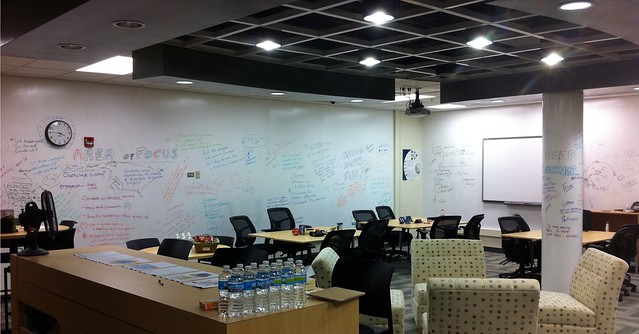
- I had seen Idea Paint before, but twitter posts today reminded me about it
- I want to paint my harkness table in idea paint
- Giving students permission to write on walls and furniture is liberating
- Idea Paint promotes collaboration and community building
- Sheryl Nussbaum Beach tweeted a link to this blog post by Ryan Bretag
- Ask if I can paint the table…if not, I’ll try for my office walls!
August 18, 2011: Day 79
History Education in a World of Surplus Information
- History could be taught backwards starting at current events
- It is impossible to cover the history of man during the time a student is in high school
- With technology, students have easier access to the past
- Students don’t need to come to school to find out historical information
- Teachers should create powerful essential questions that require students to master information literacy skills they’ll need in a digital age, and to master historical inquiry
- In a world of information surplus, we must recognize that good history education must transform students into power information critics, able to evaluate claims and build their own truths from myriad facts.
- I came across this tweet this afternoon
- Follow Mike on twitter
- Subscribe to Mike’s blog
- Consider what he is saying when thinking about history curriculum…share this post at the next humanities meeting
August 19, 2011: Day 80
Learn
LEARN from Rick Mereki on Vimeo.
What I Learned:
- There is something really compelling about this video…this is authentic learning
- Rick Mereki is a filmmaker, illustrator, photographer
- This film was shot in 44 days in 11 countries…imagine what a year of authentic learning would look like
- I came across this on one of my favorite sites brainpickings.org
- Continue to always remember to make learning real and experiential for students
August 20, 2011: Day 81
5 Things Students Say They Want from Education
- eSchool News readers were asked: “What’s the one thing you hear most often from students about what they want in school?”
- 5. Interactive Technology
- 4. Teacher Mentors
- 3. Innovation
- 2. Choice
- 1. Real world application and relevancy
- In my Google Reader from the 21st Century Fluency Project
- In designing curriculum, try to incorporate these 5 things as much as possible
- Ask my own students what they expect out of school
August 21, 2011: Day 82
- Jamie Baker always has a way of making me really think about topics
- Most people are asking themselves, “What’s in it for me?”
- It’s not about “you”…it’s about what’s best for students and preparation for their futures
- What’s in it for me? is the wrong question
- What can I do? is the right question
- Ask what you can do to contribute, succeed, and be a part of the solution
- Jamie Field Baker is one of my favorite bloggers and thinkers…I read all of her posts faithfully
- When change becomes difficult, try to change the conversation from What’s in it for me to What can I do?
- Share this post with other educational leaders
August 22, 2011: Day 83
- Inanimate Alice is a digital novel
- It is interactive…the reader drives the story forward
- It uses text, image, music, sound, puzzles, and games
- As Alice’s journey progresses, new storylines appear elsewhere providing more details and insights, enriching the tale through surprising developments
- Students are encouraged to co-create developing episodes of their own, either filling in the gaps or developing new strands
- I was cruising nwp’s digital is site and found inanimate alice
- Check out the teach with alice section on the site
- The curriculum is perfect for middle school…investigate ways to incorporate it
August 23, 2011: Day 84

- 65% of kids today will be doing work that hasn’t even been invented yet
- It is time to cast away our fears about technology, survey our lives, and figure out what works and what doesn’t work
- Experiment with Scratch
- Embark on a meaningful project
- Learn how to be a responsible digital citizen
- We have a mismatch between the inventive ways kids learn at home online and in their game play and with their friends on social networks and the industrial age structure, division of subject matter, and ways of assessment in school.
- Five practical solutions:
- End standardized end of grade testing
- Make all learning real, relevant, tied to communities, with real application in the kids’ lives outside of the classroom.
- Teach kids to think through, with, about, for–and create–new, interactive digital global communication.
- Restore arts, music, shop, P.E., dance
- Eliminate the “college prep” and AP distinctions, and stop making college the implicit standard for all education, back to preschool.
- This was in my ASCD newsbrief …if you don’t receive this daily, make sure you sign up for it
- Read Cathy Davidson’s book, Now You See It
August 24, 2011: Day 85
PLP Leading Edge Boot Camp

- To self evaluate
- Leading the Shift– A discussion that sets the stage for what 21st Century leadership looks like in today’s learning landscape. We will take a look at the barriers that leaders face and look at reports, articles, research that are shaping the trends and shifts.
- To collaboratively learn in an elluminate session while listening to a panel
- Panel Discussion with 21st Century Leaders- Join us as we talk with seasoned leaders from around the world who are walking the walk in their schools and districts. They will share tips, tricks and lessons learned as they led their faculties through a 21st Century change process.
- Think about “yeahbuts”
- Distributive Leadership and Action Research – Find out how to leverage the talent in your building to create a learning organization with a shared vision, one that understands how to work together to support student achievement and innovation.
- Create a “mind dump” concept map in mindmeister
- The Network Literate Instructional Leader- This session examines how to promote the building of Personal Learning Networks for sharing, cooperation, and collective action by your staff as a means of supporting shifted curriculum and DIY professional development.
- Create a Mission and a Vision
- Create an action plan
- Schooling for the 21st Century- Technological pedagogy in action. This session takes a closer look at the types of pedagogy needed when using Web-based strategies to support inquiry-driven approaches to learning.
- To think deeply and express those thoughts in a NING forum
- My friend Kami sent me the link to the leading edge community as a former PLPeep
- I talked to Sheryl Nussbaum Beach and we decided this community would fit my needs best
- Continue working on my action plan and share it
- Continue with the 9 month leading edge community
- Encourage other groups to create their own PLP cohorts
August 25, 2011: Day 86
What I Learned:
- Story Corps animates some of their best loved radio stories
- Story Corps’ mission is to provide Americans of all backgrounds and beliefs with the opportunity to record, share, and preserve the stories of our lives
- Since 2003, StoryCorps has collected and archived more than 35,000 interviews from more than 70,000 participants
- Great questions list
- Great questions generator
- The animated shorts page is an incredible way to show the power of story telling
- I came across this on the Free Technology for Teachers site by @rmbyrne
- Incorporate the story corps stories into teaching memoir
- Consider using the interviewing strategies for the What’s Your Story project in 8th grade
August 26, 2011: Day 87
- open sourced collaboration can be powerful tool when thinking about who is teaching in your school
- I think all teachers need to ask themselves these questions…this shouldn’t just be for new teachers
- I’ve loved watching people add to this document throughout the day
- The topics contain the depth and breadth necessary to cover such a large topic
- @gcouros tweeted this document out today
- I plan on sharing this with the administrative team
- I’d like to use many of these as blogging prompts for teachers on our faculty ning
The Classroom is Obsolete: It’s Time for Something New

- The classroom is a relic, left over from the Industrial Revolution, which required a large workforce with very basic skills.
- This research clearly demonstrates that students and teachers do better when they have variety, flexibility, and comfort in their environment—the very qualities that classrooms lack.
- Tomorrow’s schools are: (1) personalized; (2) safe and secure; (3) inquiry-based; (4) student-directed; (5) collaborative; (6) interdisciplinary; (7) rigorous and hands-on; (8) embodying a culture of excellence and high expectations; (9) environmentally conscious; (10) offering strong connections to the local community and business; (11) globally networked; and (12) setting the stage for lifelong learning.
- Classrooms can be redesigned and refurbished to operate as “learning studios” or “learning suites”
- I came across this on the 21st Century Fluency Blog
- Read The Third Teacher (this book keeps popping up in my further learning sections!)
- When creating curriculum, make sure it is learning oriented and not classroom oriented…does it meet the objectives outlined in the school of tomorrow above?
August 28, 2011: Day 89
Habits of Mind Across the Curriculum

- Habits are an essential element for helping all students at all grade levels successfully deal with the challenges they face in school and beyond
- “Habit is a cable; we weave a thread of it each day, and at last we cannot break it.” Horace Mann
- Content = what concepts and principles do we want students to learn?
- Thinking Skills = processes required to activate the mind
- Cognitive Tasks that Demand Skillful Thinking= problem based learning
- Habits of Mind = internalization of learning

- Persisting – Stick to it.
- Communicating with clarity and precision – Be clear.
- Managing impulsivity – Take your time.
- Gathering data through all senses – Use your natural pathways.
- Listening with understanding and empathy – Understand others.
- Creating, imagining, innovating – Try a different way.
- Thinking flexibly – Look at it another way.
- Responding with wonderment and awe – have fun figuring it out.
- Thinking about your thinking (metacognition) – Know your knowing.
- Taking responsible risks – Venture out.
- Striving for accuracy and precision – Find the best possible solution.
- Finding humour – Laugh a little.
- Questioning and problem posing – How do you know?
- Thinking interdependently – Learning with others.
- Applying past knowledge to new situations – Use what you learn.
- Remaining open to continuous learning – Learning from experiences.
- I assigned this book for summer reading to teachers and administrators
- I’m preparing to have the author, Bena Kallick, come in on Wednesday to spend the day doing a workshop with teachers on 21st century skills, units of study, habits of mind, and curriculum mapping
- I worked with Bena when she was a consultant for Lower Merion School District as I was collaboratively writing curriculum and designing an integrated, project based 7th grade classroom called Communique
- Bena has so much to offer…I consider her to be an “edu-rock star”…continue to read her work
- Work with teachers to incorporate Habits of Mind into the curriculum
August 29, 2011: Day 90 (I did it!!!!)
The Power of Words
What I Learned:
- words can be powerful
- changing your words can give others a completely different outlook
- sometimes there are videos you just need to share
- Write my 90 days of learning reflection post!!

